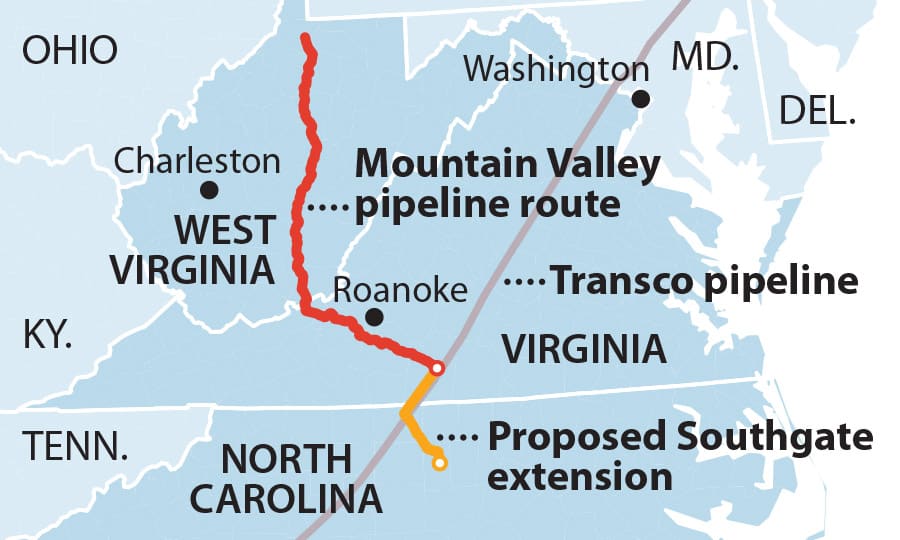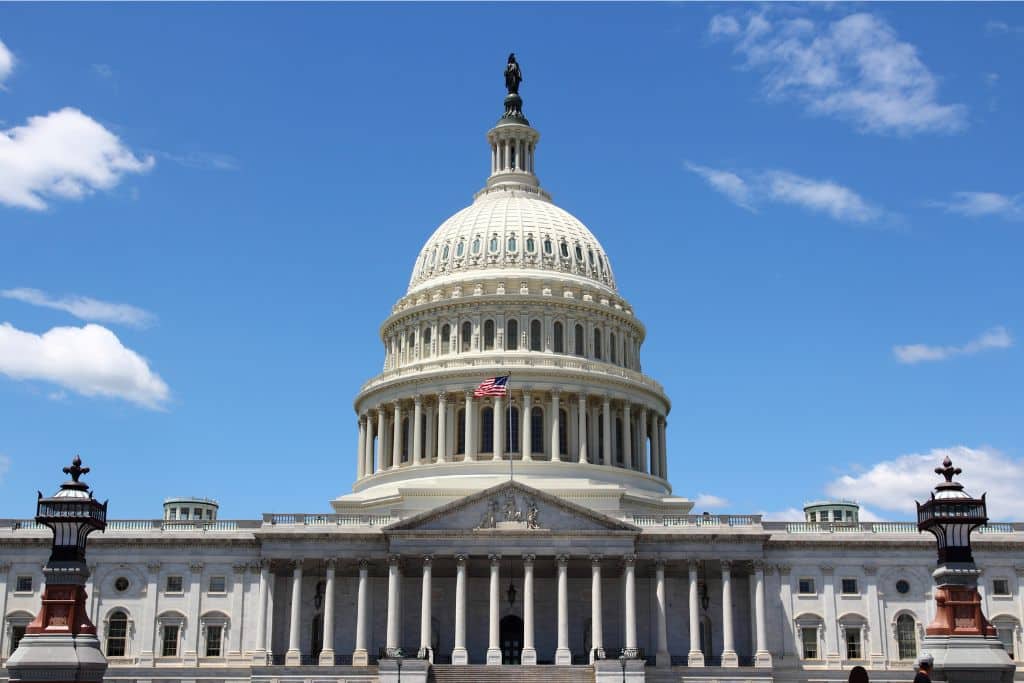The Mountain Valley Pipeline, a controversial natural gas pipeline, has received the required permits and authorisations following the passage of the Fiscal Responsibility Act. The pipeline is projected to cover 303 miles (488km) from northwestern West Virginia to southern Virginia.
—
The Mountain Valley Pipeline (MVP) received the federal government’s backing after the US Congress voted for a debt-ceiling deal that covered fast-tracking approvals for the pipeline.
Although the pipeline – which will cost an estimated US$6.6 billion – has been denied multiple permits by courts due to concerns about water quality and environmental justice, the new bill requires the US Army Corps of Engineers to issue all remaining permits within 21 days and prohibits all judicial view of the permits.
The development of the MVP has divided politicians hailing from the two states most heavily impacted by the project. Whereas West Virginia’s congressional delegation has strongly supported the pipeline, Virginia’s senators have opposed it.

The Mountain Valley Pipeline, cutting across the fabled Appalachian Trail, would deliver natural gas from northern West Virginia to southern Virginia, connecting with another interstate pipeline that extends from Texas to New York. Image: Institute for Energy Economics and Financial Analysis (IEEFA).
Senator Tim Kaine, who proposed an ultimately unsuccessful amendment to remove the pipeline provision from the overarching bill, expressed concern over the ability to review the pipeline. Following the bill’s passage, all challenges will be heard in the US Court of Appeals for the District of Columbia, which is more favourable to the pipeline, instead of the US 4th Circuit Court of Appeals, where most legal challenges have been heard.
“My Virginians just want to be sure that if this pipeline is built, it has met the requisite standards of review agencies, both state and federal, and it has withstood any court challenges,” said Kaine.
“Most people would be embarrassed to ask for that. ‘I lost, I’m unhappy, why don’t I get Congress to rewrite the rules of federal jurisdiction and take this case away from the court that’s maybe unhappy and put it in another court.’”
As part of its defence of the MVP, the White House has claimed that the pipeline is necessary for the country’s energy security. On the other hand, environmental groups have criticised the approval of the pipeline, arguing that it is largely unrelated to the debt ceiling.
“Singling out the Mountain Valley Pipeline for the approval in a vote about our nation’s credit limit is an egregious act,” Peter Anderson, Virginia policy director of environmental organisation Appalachian Voices, said in a statement.
“By attempting to suspend the rules for a pipeline company that has repeatedly polluted communities’ water and flouted the conditions in its permits, the president and Congress would deny basic legal protections, procedural fairness and environmental justice to communities along the pipeline’s path.”
Critics have also noted the significant environmental costs inflicted by the pipeline, challenging claims that the pipeline “will reduce carbon emissions and facilitate the energy transition”.
Analysis by environmental group Oil Change International revealed that the MVP would emit more than 89 million metric tons of carbon, equal to the emissions of 26 coal plants.
Other groups have raised environmental justice concerns about the MVP. Local landowners have claimed that the pipeline’s route infringes on the environmental justice rights of low-income and minority communities in both states. Residents of rural areas covered by the pipeline would also lack the resources to deal with severe malfunctions, such as an explosion.
You might also like: Environmental Groups Sue Biden Administration Over Controversial Willow Project in Alaska


















